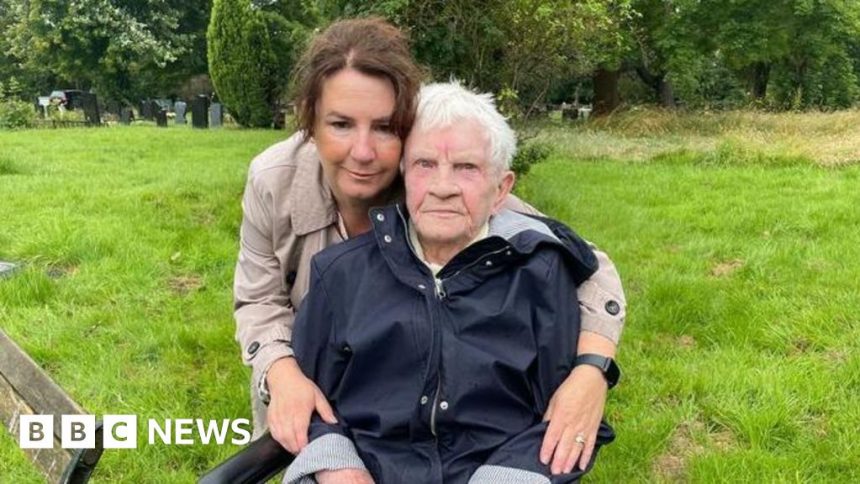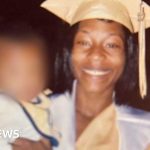‘I’ve found my babies’ graves 67 years on’
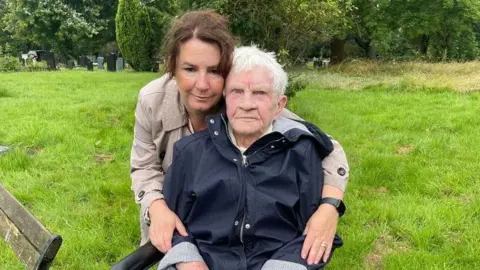 BBC
BBCA 90-year-old great grandmother has finally discovered where two of her three stillborn babies are buried almost seven decades after she gave birth to them.
Betty Rawsthorne, from Wirral, Merseyside, was helped by Gina Jacobs, who has assisted dozens of bereaved parents find the graves of their stillborn babies after she tracked down her baby son after 53 years.
Mrs Rawsthorne said it “feels wonderful” to be at her baby boy’s final resting place at West Derby cemetery in Liverpool 67 years after giving birth to him.
She then said it was “lovely” to visit the graveside of her stillborn baby girl in a cemetery in Everton.
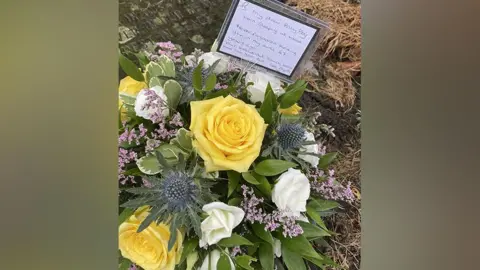
Between 1955 and 1969, Mrs Rawsthorne had seven children. Three of them were stillborn.
She recalled what happened at the time of the delivery of her baby boy.
“I held that one. I had him in my arms. He was the spitting image of his dad.
“I never forgot them. You never forget having a baby, you know. All I remember was nursing him. I knew he was dead, but I nursed him.”
BBC Action Line: If you or someone you know has been affected by issues in this piece, these organisations may be able to help
After his birth, the baby boy was brought in a shoe box to West Derby cemetery, where he was included in a burial taking place that day.
At the time a slip of paper was provided, detailing the grave number. But in the aftermath, the slip was lost, so Mrs Rawsthorne never found out where her baby boy was.
Her daughter, Jo Norton, Mrs Rawsthorne’s seventh child, initiated the search for the babies, which she said the family have always talked about and acknowledged.
“Had they treated women and understood that you can’t make a decision straight after giving birth I just think this maybe wouldn’t have happened to many hundreds, possibly thousands of women,” Ms Norton said.
A short drive away at Everton cemetery, Mrs Rawsthorne arrived to see where her stillborn baby girl was buried.
She described the experience of being at her baby girl’s graveside as “lovely”.
Ms Norton reminds her mother of what happened when her baby girl arrived.
“On the first one you got to hold him, didn’t you? But you didn’t get to hold this one,” she said.
“No,” her mother recalled.
Both of the babies were born at home and stored in a sideboard drawer before being collected for the cemetery.
Mrs Rawsthorne described how she could not open that drawer for years after suffering the losses, a pain felt, too, by her daughter.
“When she said to me she couldn’t look in a chest of drawers for two years, it gets me upset now, because I’ve never seen that side to my mum.
“So it’s just been very emotional but lovely,” Ms Norton said.
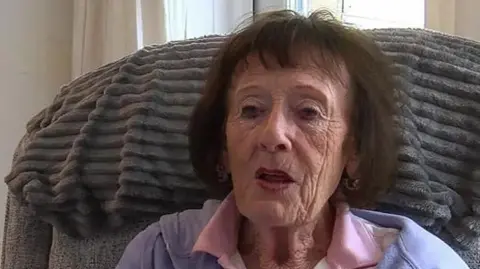
Mrs Rawsthorne and her family have been helped by Ms Jacobs who has helped dozens of bereaved parents find the graves of their stillborn babies who were born decades ago.
Practices of the past meant parents often never knew where their babies had been buried.
Mrs Jacobs began her campaign after finding her own baby, Robert. She has helped Mrs Rawsthorne and her family to find the graves using public burial records.
“She’s carried those babies with her for all these years, which I am not surprised by because we all did.
“Every one of us,” Mrs Jacobs said.
But another baby girl – who Mrs Rawsthorne gave birth to in hospital remains missing and seemingly unrecorded.
‘Joyful’
Mrs Jacobs said she would never give up searching for and reuniting stillborn babies with bereaved parents.
She said: “I feel so joyful that Betty has found where her two babies are, but we have to find that third baby.”
Before leaving the cemetery, Ms Norton asked her mother whether it changed anything for her.
“Not really, no,” she said.
“I just know that my babies are all right.”
Listen to the best of BBC Radio Merseyside on Sounds and follow BBC Merseyside on Facebook, X, and Instagram. You can also send story ideas to northwest.newsonline@bbc.co.uk



